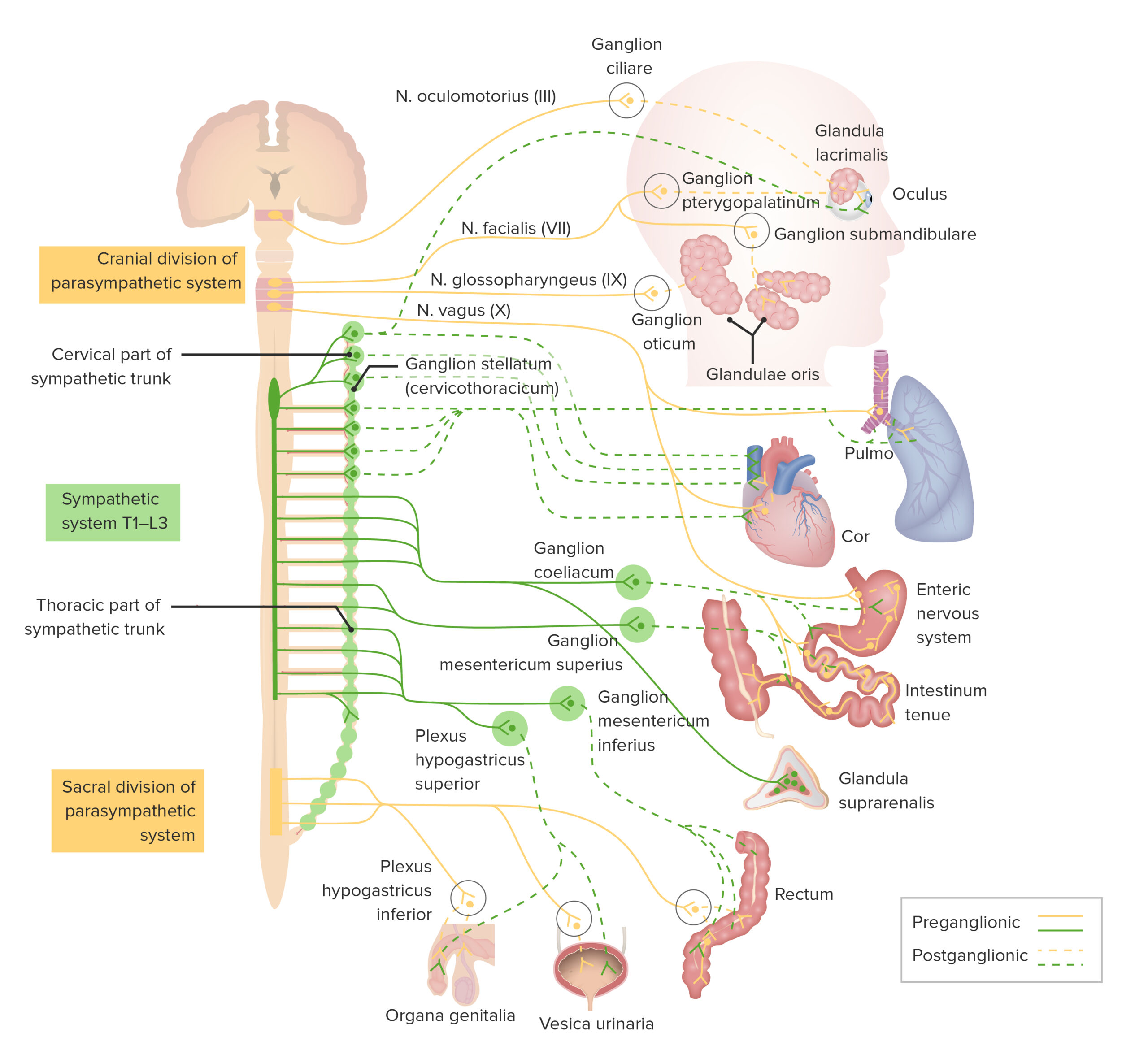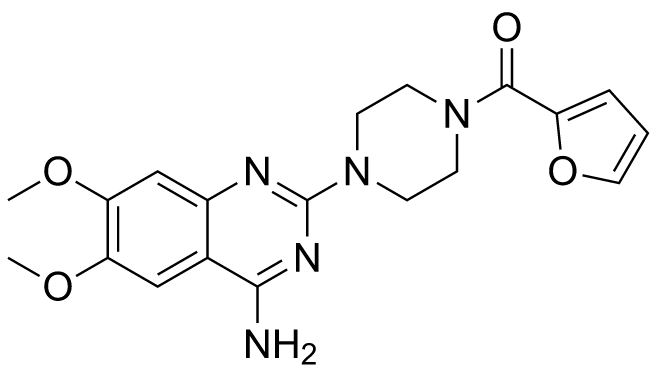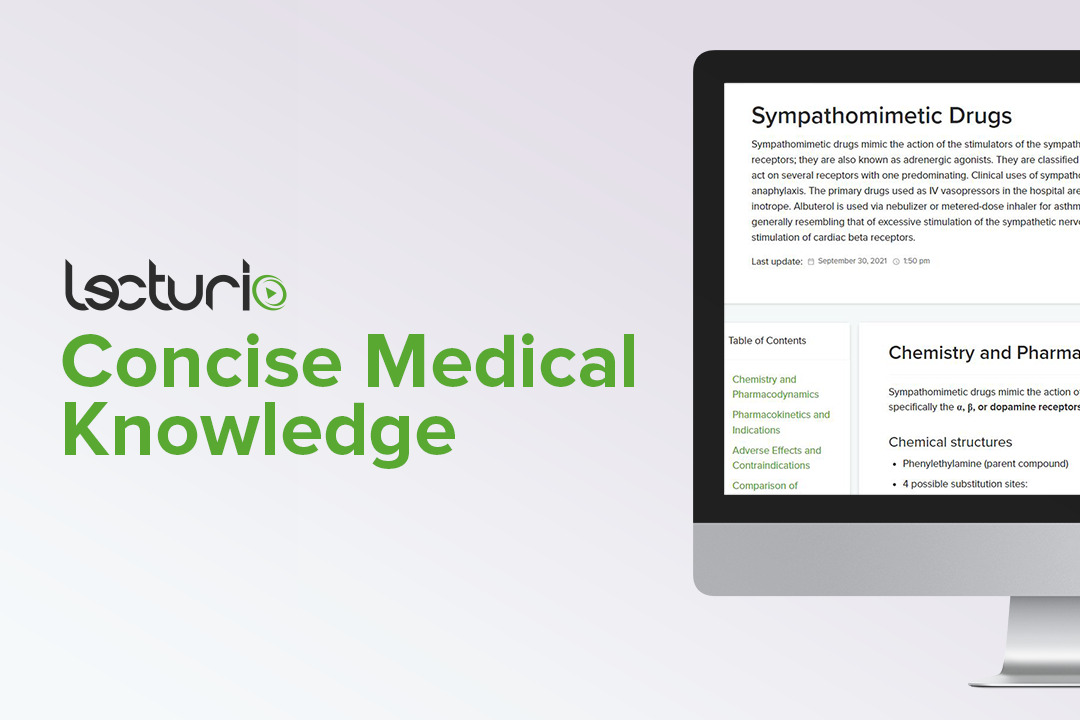Playlist
Show Playlist
Hide Playlist
Global Effect of Sympathomimetic Drugs on the Vascular System
-
Slides Global Effect Sympathomimetic Drugs on Vascular System.pdf
-
Reference List Pharmacology.pdf
-
Download Lecture Overview
00:00 Now, when we take all of these together, we have to look at multiple innervation systems so that we can understand the overall effect. 00:08 So in the vascular system, it is acted upon by alpha 1, alpha 2 and beta 2. 00:14 So, let's take a look at each of these in this special circumstance. 00:22 The alpha 1 agonists. The prototypical alpha 1 agonist is phenylephrine. It contracts smooth muscle in the splanchnic blood vessels, so that means the one that goes to the gut. 00:34 And it increases blood pressure by incresing the total peripheral resistance. 00:40 Now, one of the side effects of phenylephrine is reflex bradycardia. 00:46 Now, I'm going to spend a little bit of time to explain this. 00:51 We would think that an agonist of a sympathomimetic drug or a sympathomimetic system would cause a fast heart rate. 00:58 But what we're talking about here is a very specific drug that is only acting on blood vessels, it's not acting on the heart. So the heart is free to respond however it wishes. 01:10 When the heart senses that the blood pressure is higher, it will slow itself down, thinking that there's too much adrenaline around. 01:19 Right. So that's why you get reflex bradycardia from phenylephrine. 01:25 The other issue too is that the baroreceptors also have connections to the vagus nerve which innervates the heart, so the vagus nerve will actually slow down the heart as well. That's why phenylephrine causes the reflex bradycardia eventhough it's considered the sympathomimetic. And the reason why is cause it's an alpha 1 agonist. 01:46 Okay. Does that sound like it make sense? Alright, let's move on. 01:51 What about the alpha 2 agonist? The classical alpha 2 agonist is clonidine. 02:00 Now, I just finished telling you that alpha 1 agonist will increase the blood pressure, and now I'm going to tell you that alpha 2 agonist are decreasing the blood pressure. 02:10 Why is that happening? Well, let's take a look at the blood vessel itself. 02:15 Yes, alpha 2 agonist cause vasoconstriction. 02:19 So, clonidine for example, or other alpha 2 agonist causes some mild constriction of the blood vessels. 02:25 However, clonidine also crosses the blood brain barrier. 02:29 And it accumulates in the brain. 02:31 And now what it's doing is it's acting to reduce sympathetic outflow and blood pressure. 02:37 Why? Well, if you have an excessive amount of adrenaline crossing through your system, and it's sensed by the brain, you know that the brain is saying, "Uhh ohh, we're really in trouble. We need to reduce our sympathetic outflow." So, it's taking advantage of a feedback loop. 02:52 That's why clonidine reduces blood pressure. 02:55 Now, I should mention very quickly that clonidine is not our favourite form of blood pressure agent, I'm going to talk about it more in our hypertension lectures. 03:04 The problem with clonidine is because it acts centrally, you can also get orthostatic drops when you stand up. 03:13 Okay, let's go on to the beta 2 agonist. 03:16 So, remember that the beta 2 receptor is in the lungs, right? There's two lungs, one heart, so beta 1 is heart, beta 2 is lungs. 03:24 Albuterol, salbutamol. Salbutamol is better known as ventalin. 03:28 There is going to be some vasodilation in the skeletal muscle with these drugs. 03:34 But you have to usually take a very high dose in order to achieve that. 03:39 There are maybe some reduction in blood pressure with the usage of ventalin. 03:44 In general, I've never seen that in clinical practice. 03:47 There is some vasodilations in the lungs as well. 03:52 So, let's talk about toxicity. 03:54 With catecholamines, they rarely cause clinical problems as medications. 04:00 It's quite rare because they're quite short lived. 04:02 However, I do want you to go back and read up on "pheochromocytoma". 04:06 It's a relatively rare kind of tumour of the adrenal gland, that arises from the chromaffin cells of the adrenal glands, and produces large amounts of catecholamines. 04:16 And it's best done if you read it on your own in a textbook. 04:21 Dopamine. If you give excess amount of dopamine, you can sometimes cause digital ischemia and mesenteric ischemia. 04:28 We kind of mentioned that in the case that I was talking about earlier where you risk losing fingers and you risk causing infarcts of the bowel with excess of levels of dopamine. 04:39 And finally,amphetamines and cocaine which I've very briefly touched on and will cover later.
About the Lecture
The lecture Global Effect of Sympathomimetic Drugs on the Vascular System by Pravin Shukle, MD is from the course ANS - Pharmacology.
Included Quiz Questions
Which drug is most likely to increase peripheral resistance?
- Phenylephrine
- Clonidine
- Intermediate dose dopamine
- Terbutaline
- Albuterol
What best describes the mechanism of action of clonidine?
- It acts centrally leading to a reduction in sympathetic outflow.
- It directly induces vasodilation.
- It induces hypotension through nitric oxide release.
- It blocks both alpha and beta receptors.
- It primarily stimulates alpha 1 receptors.
What is not seen with phenylephrine administration?
- Reflex tachycardia
- Nasal decongestant
- Vasopressor effect
- Pupillary dilation
- High blood pressure
What is a significant side effect of high-dose dopamine administration?
- Mesenteric and digital ischemia
- Orthostatic hypotension
- Bradycardia
- Bronchoconstriction
- Hypothermia
Customer reviews
5,0 of 5 stars
| 5 Stars |
|
5 |
| 4 Stars |
|
0 |
| 3 Stars |
|
0 |
| 2 Stars |
|
0 |
| 1 Star |
|
0 |






